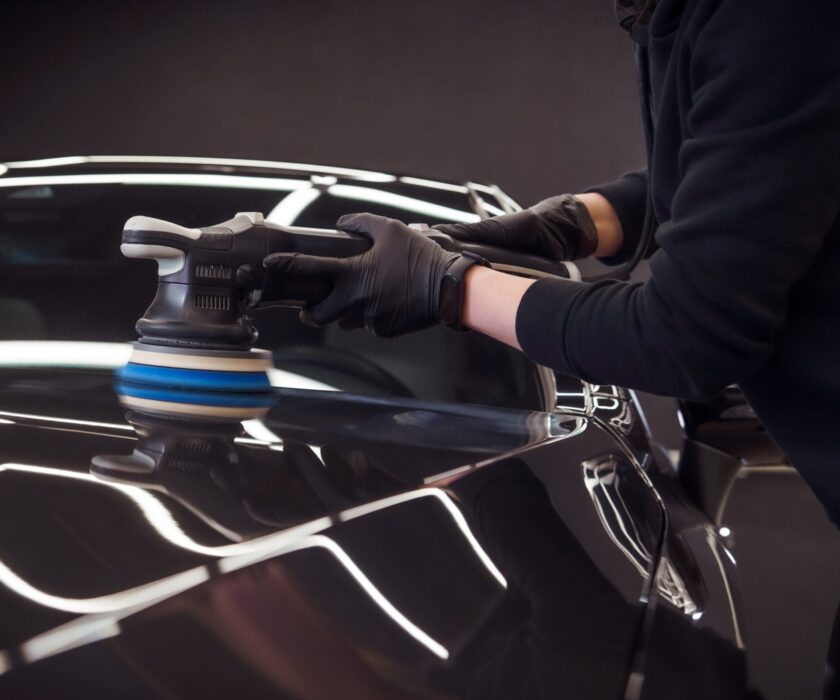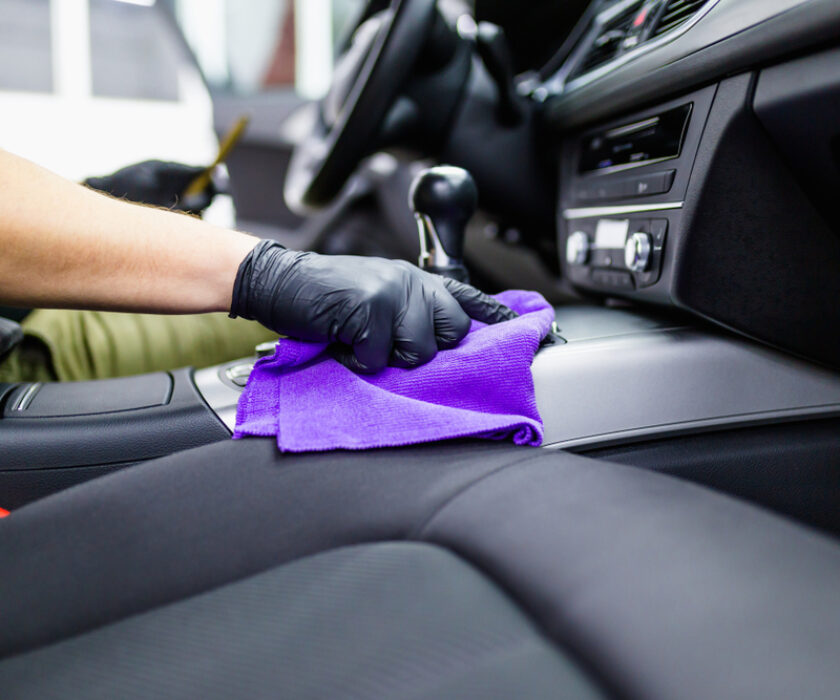Have you ever found an unsightly scratch on your car? Maybe you’re wondering if a simple car wash would suffice, or perhaps if does car detailing remove scratches? This is a question that many car owners have, and the answer can depend on several factors, like the depth of the scratch and the techniques used.
Does car detailing remove scratches? In a lot of cases, yes. A professional detailer can work wonders on your car’s paint, making it look as good as new. However, it’s not always a magical fix for every blemish.
Understanding Car Scratches and Car Detailing
Before we go any further, let’s talk about the enemy: scratches. You see, car paint isn’t just one thick layer. It’s actually a combination of layers that, when scratched, compromise the overall integrity and look of your car’s exterior. Car care and keeping your car’s paint in good condition is key to preventing rust.
Types of Car Scratches:
Generally, there are three types of car scratches:
- Clear Coat Scratches: This is the most common type of scratch, affecting the outermost layer of your car’s paint job. Think of it as a shield protecting your car’s paint from UV damage and the elements. These scratches can often be polished out during a car detailing session because they’re superficial, but ignoring them can lead to more serious problems later on. Using a microfiber cloth to apply a quality car polish, like the car polish formulated with abrasive particles, can help diminish this type of scratch.
- Primer Scratches: This scratch goes a layer deeper than the clear coat, into the primer. A primer is what gives your car that smooth, flawless finish, and helps keep your color looking sharp. Since they’ve broken through the clear coat, they’re more visible. These can be a bit trickier and may need professional attention. They might require more intensive treatments like a scratch repair to lessen their appearance.
- Deep Paint Scratches: Now, these are the rebels. This type of scratch goes right down to the bare metal of your car’s body. These scratches usually happen because of keys, collisions, or (ouch) rocks hitting your car. They’re the toughest to fix because they expose the metal underneath to rust and oxidation. Ignoring these will worsen the damage over time, potentially leading to costly repairs. These often require more than just detailing—they might need repainting to fix the affected area.
What does car detailing involve?
Car detailing goes above a regular car wash, offering a more specialized cleaning experience for your car, inside and out. Most full-service car washes only offer a basic cleaning—think of it as a quick rinse. Let’s look into what car detailing entails and see if it can tackle those pesky scratches. Car detailing generally focuses on two main areas:
- Interior Car Detailing: This involves a deep clean of the car’s cabin using specialized tools and cleaning solutions. Interior detailing will target dirt on upholstery and carpets. It also will revitalize materials such as leather, plastic, and vinyl. This is where an interior detailing pro would use a variety of products to achieve different results based on the specific material being cleaned.
- Exterior Car Detailing: It isn’t just about restoring that showroom shine; it’s about decontamination. This involves a thorough cleaning of your vehicle using things like a clay bar, which is specifically designed to remove those stubborn contaminants from the car’s paint. After cleaning, the exterior detailing then focuses on restoring the shine by either buffing and polishing away the imperfections or sealing with wax or a sealant. Many times, a basic car care routine will include a coat of wax after washing to add a layer of protection.
So, Does Car Detailing Remove Scratches?
The answer is it depends. If you have those lighter, clear-coat scratches, a good detailing session can indeed buff them out. Detailers have their arsenal of high-quality polishes, compounds, and tools to tackle those blemishes and make them practically invisible. They can even use 1000-grit and 2000-grit sandpaper to smooth out the clear coat if needed, which makes a huge difference. For deeper scratches, particularly the ones that have made their way to the primer or—heaven forbid—the metal, detailing alone might not be the solution.
Detailers can improve the appearance, but complete removal might involve techniques beyond their scope, like repainting. While detailing might help reduce their appearance, getting rid of them entirely requires more specialized attention—perhaps a touch-up paint for those deep paint scratches. For deeper scratches, it’s not uncommon for a detailing expert to recommend a service called paint correction.
Exploring the Role of Paint Correction in Detailing
Think of paint correction as giving your car’s paint a makeover, focusing on restoring and rejuvenating the vehicle’s finish. This is done through meticulous levels of compounding, polishing, and sealing to make it look new again.
Techniques Detailers Use for Scratch Removal:
- Polishing: Using a specialized car polish and a buffer can minimize minor, clear-coat scratches. The goal with polishing is to remove very thin layers of the clear coat to level the surface, removing or reducing the appearance of the scratches.
- Compounding: If the scratches are a tad deeper, a compounding process with a more abrasive solution may be used. This is a more aggressive process than polishing and is usually done before polishing. Compounding is typically reserved for more severe imperfections.
- Wet Sanding: Some professional detailers will utilize 1000-grit and 2000-grit sandpaper and water to level out the surface of the clear coat for deep scratches before the buffing and polishing processes begin. If this is done improperly it can ruin your car’s paint job, so always be sure to hire a reputable detailer.
Can a Detailer Completely Remove Car Scratches?
Car detailing works wonders on minor imperfections like swirl marks and clear-coat scratches. A professional detailer can assess the extent of the damage and provide tailored solutions. Now, let’s say you have deeper scratches, like those pesky ones that have dug into the color or even exposed the metal. This is where things get a bit more complex.
While professional techniques and high-quality products can significantly minimize a car’s appearance, there’s a limit to what detailing can accomplish. Does car detailing remove scratches that deep? If you’re looking for top-notch car detailing and advice on removing your car scratches in Broomall, PA, look no further than our experts at Berardi’s Detailing.
Preventative Measures to Avoid Scratches
Here are some easy preventative tips:
- Wash Regularly: Consistently washing your car, preferably by hand, helps prevent dirt buildup, which is a major culprit in those pesky micro-scratches. You can use a quick detailer spray and a microfiber cloth in-between washes to help keep the exterior of your vehicle clean. Regular cleaning is vital.
- Mind Your Surroundings: Those car park dings? Avoid them like the plague. Be mindful when parking to minimize the risk of door dings, shopping cart mishaps, and those dreaded rogue branches.
- Use Car Covers: Protect your car’s exterior from harsh weather with a high-quality car cover. This physical barrier is an extra layer of defense against scratches. This helps a lot if you park outside regularly.
- Wax On, Wax Off: Think of waxing your car like giving its paint a nourishing face mask. Waxing not only gives your vehicle that deep shine, but it adds a layer of protection from the elements. This is my favorite step and really does give it a fantastic, satisfying shine.
- Ceramic Coatings Offer Great Protection: Ceramic coatings are another great way to protect your car’s paint, much like PPF does. A lot of detailers offer Ceramic Pro coatings as a service. Be sure to do your research when it comes to Ceramic Pro, ceramic coating costs can be high, so make sure to find a reputable detailer and the right package for your car.
We also offer additional paint protection services in the Coatesville, PA area and can answer any questions you may have about protecting your car.
FAQs about whether car detailing removes scratches
Is it expensive to remove scratches from a car?
It depends on several factors, such as the depth of the scratches, the number of panels, and the overall condition of your vehicle’s paint. However, light scratches can be removed during the polishing phase of a car detail.
Can you actually remove scratches from a car?
Detailers can make many surface-level scratches vanish using techniques such as polishing and wet sanding. However, deep scratches often need more than detailing. Consider these points:
- Minor scratches, the kind you can barely feel with your fingernail, often buff right out during detailing.
- Deep scratches require specialized care—sometimes even repainting—to fully address the issue.
Is it worth fixing scratches on a car?
Addressing scratches is about maintaining your car’s value, appearance, and preventing more serious problems, like rust, from developing. Does car detailing remove scratches enough to make it worth the investment? If you’re looking to have minor scratches removed and your car’s paint restored, then it’s a worthwhile investment to have your car detailed.
How do professionals fix car scratches?
Professionals use a combination of tools and skills to remove car scratches, such as; polishing, color sanding, and paint correction. They will typically assess the depth, size, and location before recommending a suitable repair method.
So, does car detailing remove scratches? It’s not a simple yes or no. For those everyday scratches, a detailer can indeed work their magic. But when it comes to deep scratches, it’s best to have realistic expectations. Detailing helps, but a more involved process may be necessary to completely erase deep damage. Regular care, preventative measures, and professional help – like with our team at Berardi’s Detailing & Auto Body – can work wonders. It’s important to address those scratches before they become bigger headaches. Request a free quote before booking any services so you have a good idea of the costs.



